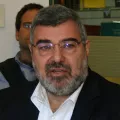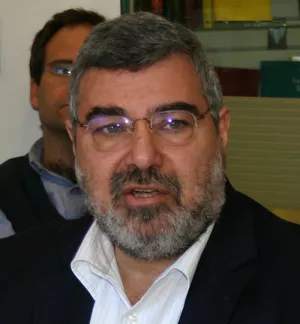"I am astounded by how many people in the United States and abroad look at Russia’s direct military involvement in Syria and mainly reflect on the erratic and wavering U.S. policy in the region. I do not see how the United States should be singled out for a largely failed policy that has caused so much death and destruction in Syria, when many others in the Mideast and abroad were much more directly responsible for the torment of Syria.
This is certainly an important moment, but what it portends will only become clearer months down the road. For now, we can really only make a few observations and ask some questions about Russian militarism in Syria. Here is my list of the most significant ones.
1. Is this finally the moment that marks the end of the “post-Cold War era” that we have been in since 1990, and that nobody has adequately found a name for? This is clearly not a renewal of Cold War rivalries, but rather perhaps the first clear example of the new constellation of forces that will converge in different parts of the world to wage ideological battle or seek strategic advantage by assorted big powers and local powers.
2. That important new constellation of forces in Syria includes a global power (Russia), a regional state power (Iran), a regional non-state power (Hezbollah), and a regional quasi-state (Assad regime in Syria), all working together using military force for a single purpose. Something similar defines the Saudi-led forces working together in the Yemen war. We are likely to see this recur elsewhere in the near future, until a new and stable regional order shapes the Middle East.
3. The Russian military move in Syria obviously aims to help stabilize the Assad regime in the parts of Syria it controls. But is this also designed mainly to keep the Assad family in control permanently, to strengthen Russia’s strategic leverage in the region, to show up the United States as a fickle ally, or to beat back expanding Islamists who threaten Russia at home? Or maybe all of these goals at once?
4. Significant in this situation is the fact that the old “resistance and deterrence front” of Iran-Hizbullah-Syria has now been reconfigured in some ways to also include Russia and Iraq. If Russia does use its Syria presence to really fight ISIS and Al-Qaeda affiliate Jabhat al-Nusra, in coordination with others in the region, then we could see a whole new approach to the military battle against Islamist militancy and terror, and strategic cooperation among regional actors.
5. The coordinated military assault against various anti-Assad rebels in Syria now includes Russian, Syria, Iranian, and Hizbollah troops working closely together, in some cases in parallel with similar anti-rebel and anti-ISIS attacks by Iraqi, American, Turkish, Kurdish, French, and British forces. Is the Russian participation in this process designed to weaken the rebels and strengthen Assad just enough to then see a shift to a political process to resolve the multiple Syria wars within the country? Are we witnessing the Russian version of a “surge,” like the one the Americans used in Iraq some years ago that allowed them to (more or less) leave the country soon after?
6. Russia and Iran have both indicated that they are not necessarily fighting for the Assad family’s incumbency, but rather for a friendly regime in Syria, and for denying the Americans the ability to decide which Arab leaders stay and which ones go. If this military boost now allows Assad to regain his footing and enter a political process for a transitional government after free elections under UN supervision, would he then say that he defeated the terrorists and can now retire in favor of a more liberal new government that would miraculously be friendly to Iran and Russia? So could this be a Russian preparatory step to the equivalent of the illusory magic act called “Vietnamization” that the United States performed in the mid-1970s, when it said it had done its job to protect South Vietnam and could withdraw safely, leaving the hapless South Vietnamese to themselves?
7. Among the most fascinating dynamics of the past year have been the many high-level diplomatic meetings in Moscow, Tehran and elsewhere, including increasingly frequent Russian talks and some military, energy, and other deals with Iran, Saudi Arabia and Egypt, among others. Russia’s deepening and widening bilateral ties in the region are striking.
8. The biggest test posed by the Russian military moves in Syria is to those regional states supporting Syrian rebels, like Saudi Arabia, Qatar, Turkey, and Jordan. How they handle this new situation will be telling of their longer term attempts to play bigger regional roles.
This new era brings into the open Moscow’s strategy and aims, and also will clarify the capabilities, commitments, and reach of all the other major local and foreign players in this region."
Khouri, Rami. “Russian forces in Syria signal a new Mideast era.” Agence Global, October 17, 2015



